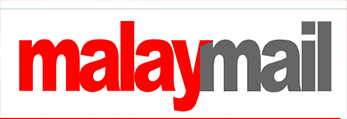NEW YORK, Jan 5 — The US Surgeon General’s warning of an increased risk of cancer from drinking alcohol may end up resonating most with younger Americans — who in recent years were already turning to mocktails and juices instead of alcoholic drinks.
It is unclear whether Surgeon General Vivek Murthy’s suggestion to update warning labels on the risks of alcohol will be acted upon by Congress, but, over the last decade, the youngest adults have been drinking less.
Brooklyn resident Amy Hudson, 35, said she cut back on drinking alcohol from multiple times a week to less than three times a month after she started having chronic migraines in 2021.
“I found mocktails to be a good way to get antioxidants while incorporating anti-inflammatory foods into my diet,” Hudson said. Ingredients like pineapple, cherry juice and ginger have helped manage her migraines, she said.
In 2023, 49.6 per cent of Americans between ages 18 and 25 had used alcohol in the last month, according to US Substance Abuse and Mental Health Services Administration national survey figures, down from 59.6 per cent from 2013.
Sean Goldsmith, chief executive officer of non-alcoholic beverage e-commerce platform The Zero Proof, said the surgeon general’s announcement comes as “more and more people are realising that drinking alcohol is not good for you.”
He is in one of his busiest seasons of the year — “Dry January,” a month where some people choose to abstain from alcohol following the holiday season.
Soft drinks are displayed in a non-alcoholic beverages shop in Strasbourg December 31, 2024. The American Medical Association in a Friday statement noted that it has warned for years of the increased cancer risk from any alcohol consumption. — AFP pic
About 90 per cent of The Zero Proof’s shoppers are alcohol drinkers looking for healthier beverages, Goldsmith said. More than 60 per cent of his customers are women and most are Millennials aged between 28 and 43.
Public health bodies like the World Health Organisation have increasingly turned their attention towards alcohol after making progress on stronger tobacco controls.
The American Medical Association in a Friday statement noted that it has warned for years of the increased cancer risk from any alcohol consumption. “Despite decades of compelling evidence of this connection, too many in the public remain unaware of alcohol’s risk,” it said.
Sara Martin, a 42-year-old salesperson in Los Angeles, isn’t participating in Dry January, but said mocktails are great options at work parties. “I’m in an industry that drinks more heavily than I can keep up with,” she said.
She’s glad younger people in her industry “are pushing back on the compulsory alcohol culture,” but doesn’t think that labeling cancer risks alone will reduce drinking.
“It took massive public awareness campaigns to link cigarettes and lung cancer firmly in people’s minds,” Martin said. “But the labels would be the first step.” — Reuters








